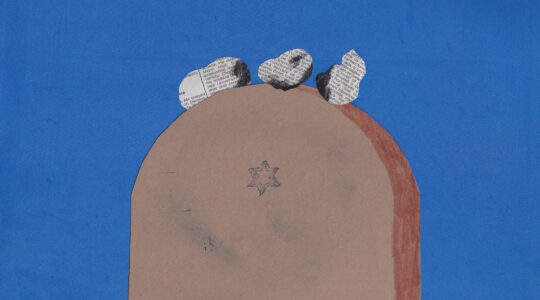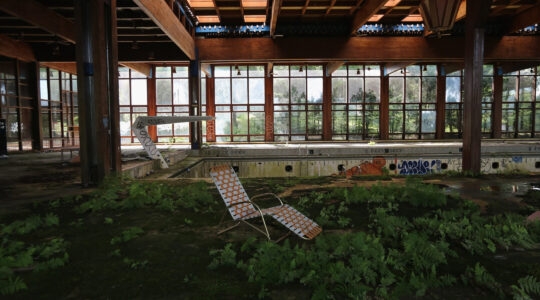Editor’s Note: Thank you to Joanie Calem for sharing her blog with us which originally appeared here.
This year, as occasionally happens, Passover and Easter are both on the same weekend. Passover starts on Friday night, March 30, and Easter is on Sunday, April 1. While each holiday is celebrated by different religions of course, both holidays focus on historical events, and both holidays tell of miracles, miracles that are central to the narrative of each holiday. (Yes, I know that there are disagreements amongst historians about whether or not the events relayed in each of these holidays actually happened, but I contend that even if the facts are not exactly the same as the religious stories, the symbolism is helpful!)
So what is a miracle? The first definition usually involves divine intervention: A surprising and welcome event that is not explicable by natural or scientific laws and is therefore considered to be the work of a divine agency. The second definition is more how I tend to use the word: A highly improbable or extraordinary event, development, or accomplishment that brings very welcome consequences. These second kind of miracles happen every day, but sometimes we have to change our perspective in order to notice them.
Growing up Jewish, the miracle of Passover, the parting of the Red Sea, always captivated me. The Passover story, with the Hebrews enslaved for generations, an abusive, disrespectful Pharaoh, Moses as a hesitant and unwilling but eminently capable leader, negotiations that continually flip-flopped as to the outcome of the Hebrews’ release, and then that climactic ending of the sea parting as Pharaoh and his army were bearing down on the fleeing Hebrew slaves, was an extremely powerful metaphor for me throughout my childhood. So much of my adult attitude to life can be tied to that story: don’t believe you are what others may be trying to make you (a slave), don’t be convinced you deserve abuse even if that’s all a figure of authority is dishing out (got a Pharaoh in your life?), don’t think you can’t be an effective mover and changer even if you’ve never done something before (Moses stuttered and still was the right person for the job of the chief negotiator), don’t take no for an answer when freedom and justice are the issue at stake (those in power don’t always want change, to say the least), don’t despair regardless of how bad circumstances look, don’t give up, and don’t believe that what looks like a wall can’t move and change, because after all, who would ever think that the water could part to allow the Hebrews leaving Egypt on foot to escape the Pharaoh’s armies with their horses and chariots. Totally a story of the underdogs winning in the long run. Of course, this is only one chapter in the long history of the Jewish people, and not all the chapters have positive endings, but this particular chapter ends with a great deal of hope.
As I am not Christian, I am not as intimately familiar with the Easter story, but I do know that the sense of hope, the sense of miracle, the sense that sometimes events happen that are “highly improbable and extraordinary” that permeates the Passover story is also paralleled in the Easter story with Jesus rising from the dead on Easter Sunday.
And what does all of this have to do with the world of autism? As a mother of a child with autism, I spent many years praying for a miracle, and every year, these holidays make me reflect back on the desire for that miracle. At first, I prayed that one day my son would just miraculously wake up and feel better, that his dis-ease in the world would just be a temporary thing that we could chalk up to a rough beginning. When that didn’t pan out, I prayed for a cure. While there are certainly families that have tried numerous medical and health interventions that we haven’t tried, we did chase lots of different therapies down in our hope for a miraculous cure. None did the trick, but one very smart practitioner said to me, “You are looking for one key. There isn’t one key to unlock everything, but everything that you are doing will help a bit.” While that perspective was helpful in some ways, I noticed that I had now expanded my desire from wanting just one miracle, to wanting all of the miracles that would help. Through the years, in speaking with other families in the world of autism, I discovered that my desire for a miracle was not unusual….
I don’t even remember at what point I stopped looking for a miracle. My son is now 23. He is a talented artist. He still struggles with a lot of things, but he has also far exceeded the fears that were propelling my need for a miracle. And he personifies the story of Passover, those same qualities that I gleaned growing up are his daily fare: don’t believe you are what others may be trying to make you (a label, someone who is limited, someone who is disabled), don’t be convinced you deserve abuse even if that’s all a figure of authority is dishing out (despite a stream of bad experiences with impatient and teachers who could not understand him, he continues to love to learn), don’t think you can’t be an effective mover and changer even if you’ve never done something before (every new life requirement is scary, but he never lets his disability stop him from tackling the new challenges, despite the anxiety and the self-doubt), don’t take no for an answer when freedom and justice are the issue at stake (he has unfortunately endured many false accusations, and has had to learn to self-advocate under some really unpleasant situations), don’t despair regardless of how bad circumstances look (sometimes those due dates for assignments just pile up, but he has learned to take a deep breath and keep moving), don’t give up (I have endless awe at his ability to get up each day and go back into the world, no matter how hard the day before was), and don’t believe that what looks like a wall can’t move and change (this is probably the definition of his life!)
So, maybe, when I consider miracles as “highly improbable or extraordinary events, developments, or accomplishments that bring very welcome consequences” I realize that we have been living a life of ongoing tiny miracles. The autism is not gone, that miracle did not happen, but perhaps the Passover miracles did? Sometimes the water parts in metaphorical ways!
Joanie Calem is an autism parent, teacher, songwriter, performer and disability awareness advocate. Since her first year of teaching in 1984, Joanie always had students with diverse learning styles, and learned to adjust her teaching in order to meet students where they are, building from their strengths and helping them learn to strategize their perceived weaknesses. Wearing the dual hat of both teacher and parent of a child with special needs, Joanie has extensive learning in the field of Sensory Processing Disorder. For the past four years she has been leading “concert-conversations” for teachers, parents and communities, sharing original songs as starting points for discussions on how to build truly inclusive communities that allow room for the increasing “neurodiversity” in our world. These sessions focus on understanding how Sensory Processing Disorder presents in classrooms, community settings and other public spaces, and exploring simple strategies that can be put in place to make our environment more sensory friendly for those that struggle with sensory overload.
The New York Jewish Week brings you the stories behind the headlines, keeping you connected to Jewish life in New York. Help sustain the reporting you trust by donating today.




